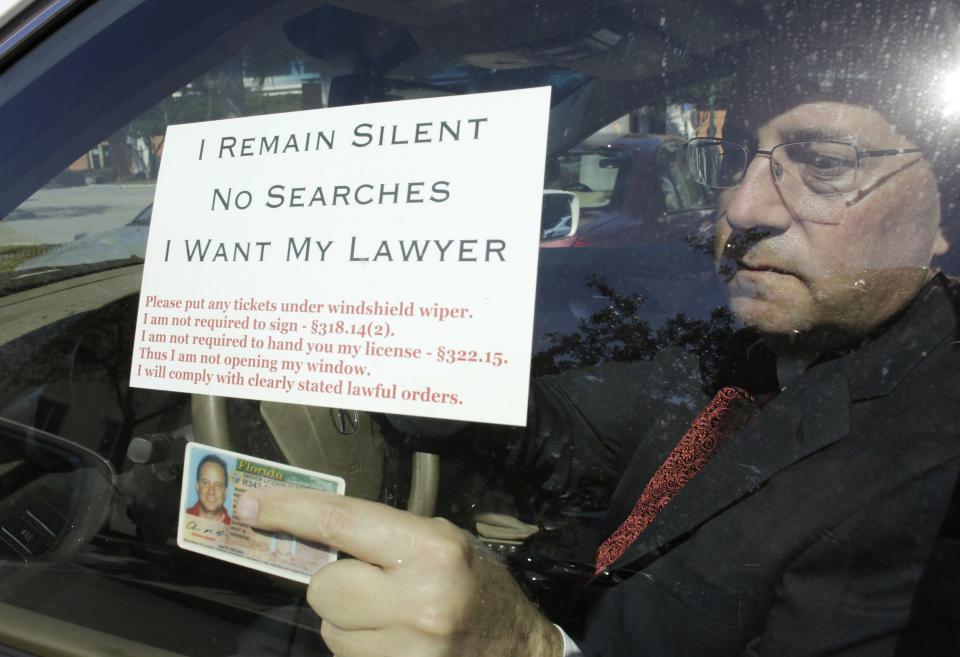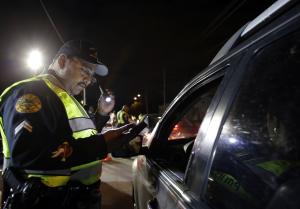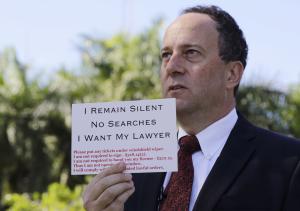MIAMI (AP) — Drivers at
drunken-driving checkpoints don't have to speak to police or even roll
down their windows. They just have to place their license and
registration on the glass, along with a note saying they have no
comment, won't permit a search and want a lawyer. At least, that's the
view of a South Florida attorney.

Warren Redlich
contends the commonly-used checkpoints violate drivers' constitutional
rights. He and an associate have created a website detailing their
tactics. They've even made videos, one viewed more than 2 million times
on the Internet, of their refusals to interact with police.
Doubts over the legality — and wisdom — of the tactics have been expressed by legal experts and local authorities.
Redlich,
of Boca Raton, said his goal is not to protect drunken drivers, but to
protect the innocent. He says some of his clients who passed
breath-alcohol tests still faced DUI charges because the officer said he
detected an odor of alcohol or the person had slurred speech.
"The
point of the card is, you are affirmatively asserting your rights
without having to speak to the police and without opening your window,"
he said.
Not surprisingly,
this does not sit well with law enforcement officials who insist drivers
must speak in order to make the checkpoints work. And, they point out
the U.S. Supreme Court in 1990 upheld the use of random DUI checkpoints,
concluding they don't violate constitutional protections against
unreasonable search and seizure.
"They wouldn't be allowed out of that checkpoint until they
talk to us. We have a legitimate right to do it," said Sheriff David
Shoar of St. Johns County, president of the Florida Sheriffs
Association. "If I was out there, I wouldn't wave them through. I want
to talk to that person more now."
The
widely viewed video was shot Dec. 31 at a checkpoint in Levy County,
Florida, by Redlich's associate Jeff Gray. In it, Gray approaches the
officers with the flyer, his license, registration and insurance card in
a plastic bag dangling outside the slightly open car window. The
officers briefly examine it with a flashlight and then allow him to
continue.
In bold type, the flyer states: "I remain silent. No searches. I want my lawyer."
Police
across Florida have seen the video. A spokeswoman for a large metro
police agency says Gray's experience at the checkpoint doesn't mean the
no-talk tactic is legitimate.
"He
was allowed to proceed because he clearly was not driving while
intoxicated," said Veda Coleman-Wright, spokeswoman for the Broward
Sheriff's Office. "If those officers had reasonable suspicion to believe
that the driver was impaired, they would have investigated further."
There have been other
incidents of motorists refusing to speak at DUI checkpoints around the
country. In the Southwest, some drivers resist cooperating at Border
Patrol checkpoints miles from the Mexican border that are aimed at
finding immigrants in the country illegally.
Based on differences in DUI laws, Redlich has created versions of his flyer for 10 states with more on the way.
Read the rest@
Read the rest


It’s seldom that someone gets a DUI just because the officer detected an odor of alcohol or because of slurred speech. A knowledgeable DUI lawyer will know that there are certain health circumstances that can affect the results of the tests used to detect driving under the influence. My friend who is a DUI lawyer has helped many of his client in this way.
ReplyDeleteI get that-the point is that DUI checkpoints are blatantly unconstitutional.
ReplyDelete